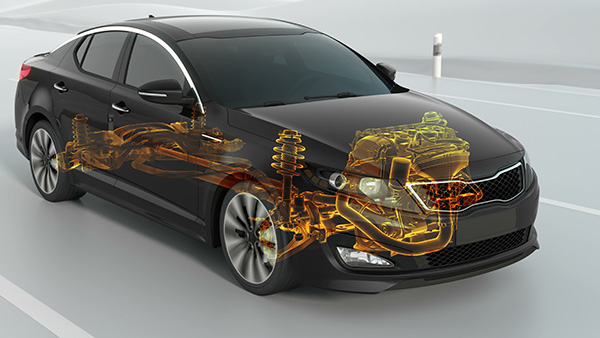
Ever wondered what makes your car move down the road? It's all thanks to the drivetrain, a complex system that works behind the scenes to transfer power from your engine to the wheels. Understanding what a car's drivetrain includes can help you appreciate its role in your vehicle's performance and keep it running efficiently. Let's take a closer look at the key components that make up this essential part of your car.
The Engine
The drivetrain's journey begins with the engine, it burns fuel to create mechanical energy, which is then converted into motion. Think of the engine as the heart, pumping power through the rest of the drivetrain. Maintaining a healthy engine is crucial because, without it, your car wouldn't move at all. Regular oil changes, tune-ups, and inspections are vital to keep this component in top shape.
The Transmission
Next up is the transmission, which can be considered the gearbox wizard. It takes the energy generated by the engine and adjusts it to the right level of torque needed to move your vehicle at different speeds. There are two primary types of transmissions: manual and automatic. Manual transmissions give drivers more control over gear changes, while automatic transmissions handle the shifting for you, offering a smoother driving experience. Keeping your transmission well-maintained ensures your car can adapt to various driving conditions effortlessly.
The Driveshaft
The driveshaft plays a pivotal role as the power connector, transmitting torque from the transmission to the differential. This long, rotating tube must be perfectly balanced to avoid vibrations and inefficiencies. When the driveshaft is in good condition, it ensures that power is effectively and smoothly delivered to the wheels. Regular inspections and maintenance can prevent potential issues and keep your car running smoothly.
The Differential
The differential is a fascinating component responsible for distributing torque to the wheels, allowing them to rotate at different speeds, especially when turning. It ensures that your car handles turns smoothly by adjusting the speed of the inner and outer wheels. A well-functioning differential provides stability and enhances the overall control of your vehicle. Regular checks and proper lubrication are essential to maintain its performance.
The Axles
Finally, we have the axles, the last crucial link in the drivetrain. Axles transfer torque from the differential to the wheels, making them rotate and move the car. These robust rods need to be strong enough to handle the force and ensure a smooth transfer of power. Different types of axles, such as live and dead axles, are designed for specific vehicle types and conditions. Ensuring your axles are in good condition is vital for the overall safety and performance of your vehicle.
Why Regular Drivetrain Maintenance is Key
Each part of the drivetrain is interdependent, working together to keep your vehicle moving efficiently. Regular maintenance is essential to catch problems early and ensure the system's longevity. Ignoring minor issues can lead to significant, costly repairs down the line. By regularly inspecting and maintaining your drivetrain components, you can enhance your car's performance, improve fuel efficiency, and ensure a smoother, safer driving experience.
Keep your car running like new. Visit B&C Auto Center for expert drivetrain care and maintenance. Your satisfaction is guaranteed!